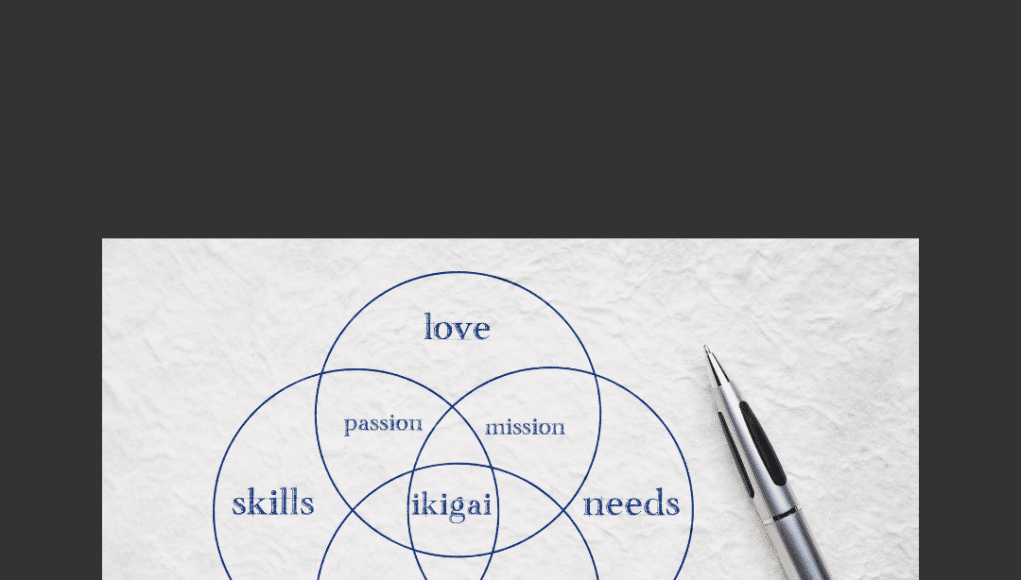In the fast-paced world of career development, professionals are constantly seeking ways to find meaning, balance, and fulfillment in their work. While many traditional approaches focus on skills development, networking, and mentorship, a more holistic and purpose-driven model of guidance is emerging, inspired by two powerful Japanese concepts: Ikigai and Moai. These principles, when integrated into a scouting approach, offer a transformative path for individuals seeking not only professional success but also a deeper sense of purpose and community.
Here’s how the principles of Ikigai and Moai can reshape the way scouting works, providing a comprehensive framework for guiding professionals toward meaningful, sustainable careers.
1. The Power of Ikigai: Aligning Purpose with Work
Ikigai is a Japanese concept that refers to “a reason for being” or a sense of purpose that brings fulfillment to life. It’s about aligning what you love, what you’re good at, what the world needs, and what you can be paid for. In the context of scouting, Ikigai offers a unique way to help individuals discover their true purpose and align their professional goals with their personal values.
By incorporating Ikigai into the scouting approach, a scout can guide individuals toward career paths that resonate with their passions and strengths while also meeting practical needs like financial stability. Instead of merely focusing on job roles or promotions, scouting through the lens of Ikigai encourages deeper reflection on what truly brings joy and fulfillment in one’s professional life.
A scout helps individuals answer critical questions to discover their Ikigai:
- What are you passionate about?
- What are your core strengths?
- How can you make a meaningful contribution to the world?
- What career opportunities align with your passions and strengths?
Example: If a professional is feeling disconnected from their work, a scout can guide them through the Ikigai framework to uncover their deeper passions and identify opportunities where they can merge personal fulfillment with professional success.
2. The Principle of Moai: Building Supportive Communities
Moai is a concept rooted in Okinawan culture, referring to a lifelong social network or group of people who support one another through life’s challenges. These groups foster a sense of belonging and mutual assistance, contributing significantly to well-being and longevity. In a scouting context, Moai offers a powerful approach to creating networks of support and collaboration in the workplace.
By integrating Moai principles into scouting, professionals can benefit from not only individual guidance but also the power of community. Scouts can help individuals build strong, supportive networks of peers, mentors, and colleagues who provide encouragement, share opportunities, and collaborate for mutual success.
The Moai principle emphasizes the importance of collective success over individual achievement. Scouts who adopt this approach create environments where individuals feel connected, supported, and motivated by their professional networks. This leads to a more balanced, fulfilling career, as professionals are not just striving for personal success but also contributing to the success of their community.
Example: A scout might encourage a professional to join or create a peer group within their industry, fostering a Moai-like network where members support one another in navigating career challenges, sharing resources, and offering advice.
3. Creating a Transformative Scouting Experience
The combination of Ikigai and Moai offers a transformative approach to scouting, one that goes beyond traditional professional development models. This method focuses on helping individuals find purpose, build community, and achieve sustainable success.
Here’s how scouts can apply these principles in practice:
a) Discovering Purpose with Ikigai
Scouts can guide individuals through self-reflection exercises and conversations that help them discover their Ikigai. By exploring their passions, skills, and values, professionals can identify career paths that bring meaning to their lives while also contributing to the world. This purpose-driven approach ensures that individuals are not only advancing in their careers but also finding joy and fulfillment in their work.
Example: A scout might lead a workshop or coaching session where professionals explore the four key elements of Ikigai—passion, mission, vocation, and profession—helping them align their career choices with their deeper sense of purpose.
b) Building Strong Networks with Moai
Scouts can encourage professionals to form or join Moai-style support groups, creating networks that provide ongoing encouragement, advice, and assistance. These groups foster a sense of belonging and reduce feelings of isolation in the workplace, especially for those in competitive or high-pressure environments.
Example: A scout might facilitate the creation of industry-specific peer groups where professionals can meet regularly to discuss challenges, celebrate successes, and offer mutual support in navigating their career paths.
c) Fostering Long-Term Growth and Well-Being
The integration of Ikigai and Moai principles ensures that individuals are not just achieving short-term career goals but are also building long-term well-being and fulfillment. By focusing on both purpose and community, scouts can help professionals avoid burnout, reduce stress, and maintain a healthy balance between work and life.
Example: A scout working with a professional experiencing burnout might encourage them to revisit their Ikigai, helping them realign their work with their passions and create a more supportive professional network to maintain a sustainable career.
4. The Benefits of an Ikigai and Moai-Inspired Approach
Integrating Ikigai and Moai principles into a scouting approach offers several key benefits:
- Holistic Development: By focusing on both purpose and community, this approach ensures that professionals are not only achieving career success but also finding meaning and joy in their work.
- Sustainable Success: Scouts who apply these principles help individuals avoid burnout by fostering a balance between personal fulfillment and professional achievement.
- Stronger Networks: The emphasis on Moai encourages the creation of strong, supportive networks that provide long-term career and personal growth opportunities.
- Deeper Engagement: Professionals who discover their Ikigai are more engaged, motivated, and committed to their work, leading to higher levels of satisfaction and productivity.
5. Applying Ikigai and Moai in Various Career Stages
Whether someone is just starting their career, navigating a mid-career shift, or planning for retirement, the principles of Ikigai and Moai can be applied at every stage. Scouts can adapt these concepts to meet the needs of individuals at different points in their career journey, ensuring that they are always working toward purposeful, community-oriented success.
Example: For early-career professionals, scouts can help them explore their passions and build initial networks. For mid-career professionals, the focus may shift to finding greater purpose in their current roles while strengthening their professional community.
Conclusion
By integrating the principles of Ikigai and Moai into the scouting process, scouts can offer a transformative approach to career development. This method goes beyond traditional career advice by focusing on helping individuals discover their purpose and build supportive communities that foster both personal and professional well-being.
For professionals seeking not just success but also meaning and balance in their careers, the Ikigai and Moai-inspired scouting approach offers a pathway to long-term fulfillment, resilience, and happiness. In a world where many struggle to find both purpose and connection in their work, scouts who embrace these principles can help individuals achieve sustainable success while contributing positively to the world around them.




























